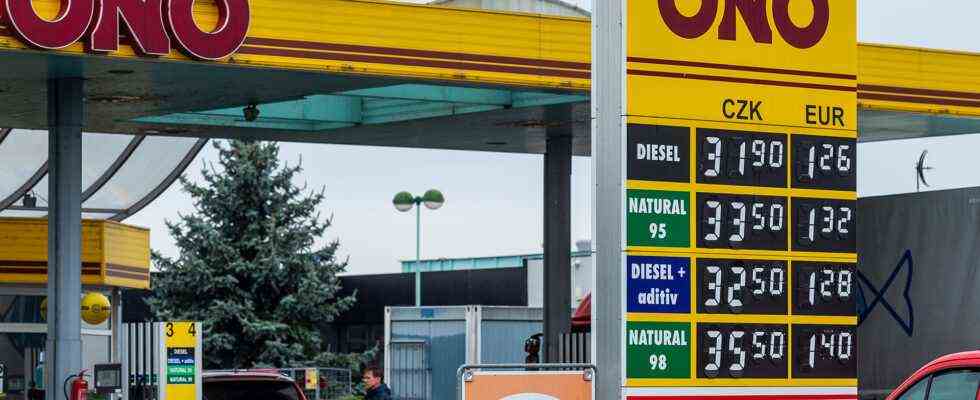Status: October 19, 2021 4:38 p.m.
In several neighboring countries, the fuel is significantly cheaper than in Germany. In view of the high prices, motorists are apparently increasingly filling up abroad – even if the savings are questionable.
German petrol station tenants have always had a hard time in the German-Czech border area. There has always been a price differential. But now more and more motorists are making their way across the border to get cheaper petrol or diesel on the Czech side.
“It pays off because it is 28 cents cheaper or 25 cents,” says a driver at the gas station in the border town of Vejprty, which is only separated from the Saxon Bärenstein by a stream. “So far, I’ve always refueled in Germany,” says a woman who briefly crossed the border to refuel. “But now it’s a bit over the top with 1.70 euros.”
High fuel prices in Germany: tank tourism to the Czech Republic
Steffen Lipsch, MDR, Mittagsmagazin, October 19, 2021
Petrol station association speaks of “petrol price paradox”
This is currently what many car owners from regions close to the border in Germany are doing. In view of the record prices for diesel (most recently 1.55 euros per liter) and petrol (1.66 euros for the E10 variety), the lower fuel prices in Poland, the Czech Republic, Austria and Luxembourg are tempting. Tank tourism has increased significantly recently, according to the Central Association of the Petrol Station Industry (ZTG). Customers are also increasingly willing to take longer journeys.
The association calls this the “petrol price paradox”. The long way to cheaper petrol is often not worth it. The additional consumption and the costs incurred due to the wear and tear of the car could quickly eat up the savings. “If a lot of people complain that they can’t get by with the 30-cent kilometer flat rate provided by their employer, then they are not allowed to go abroad to refuel at the same time,” says the ZTG. “Because then it never pays off.”
Queues at the pumps across the border
According to the ZTG, the fact that many motorists apparently still take longer journeys to the petrol station is due to the higher price sensitivity of consumers. This can also be observed in Germany, where motorists pay more attention to the sometimes large price differences between individual petrol stations and fluctuations in the course of the day. Consumer advocates advise comparing prices more closely – for example with the help of special apps.
Florian Hördegen from ADAC Südbayern has also seen increased fuel tourism to Austria lately. A liter of diesel there currently costs an average of 1.35 euros, and petrol stations charge around 1.38 euros for premium gasoline. On the other side of the border, long lines can sometimes be seen at the gas stations, said Hördegen.
Fuel prices are particularly low in Austria, Poland, the Czech Republic and Hungary
Tank tourism in itself is not a new phenomenon. According to estimates, around a quarter of the fuel used in Austria is used abroad – in Germany and in other neighboring countries. The price differences for refueling in the Czech Republic and Hungary are similarly large. In Poland, according to ADAC, fuel currently costs just 1.27 euros (diesel) or 1.30 euros (super). Fuel is currently even more expensive in Denmark and the Netherlands than in Germany.
In Germany, the operators of petrol stations, for example in the parts of Brandenburg near the border, are currently suffering particular losses. “The greater the price differences for fuel, the more the colleagues suffer,” says Hans-Joachim Rühlemann, Chairman of the Association of the Garage and Gas Station Industry North-East. Sales at his gas station have fallen by 17 percent since the beginning of October.
“It’s madness”
There are also complaints about the high fuel prices in neighboring countries, which appear cheap from a German point of view. In the Czech Republic, too, the prices for petrol and diesel rose by 20 percent year-on-year. At the same time, the average income of the Czechs is 1,300 euros – a third of the German average. Even an average price of 1.38 euros for a liter of premium gasoline can tear holes in the budget.
And that is why normal Czech citizens should come to the same conclusion as a driver from Bärenstein, who is lucky that the Czech petrol station is very close by. The fuel prices are “outrageous”, he says. “It’s crazy what’s going on here.”
With information from Peter Lange, ARD Studio Prague

